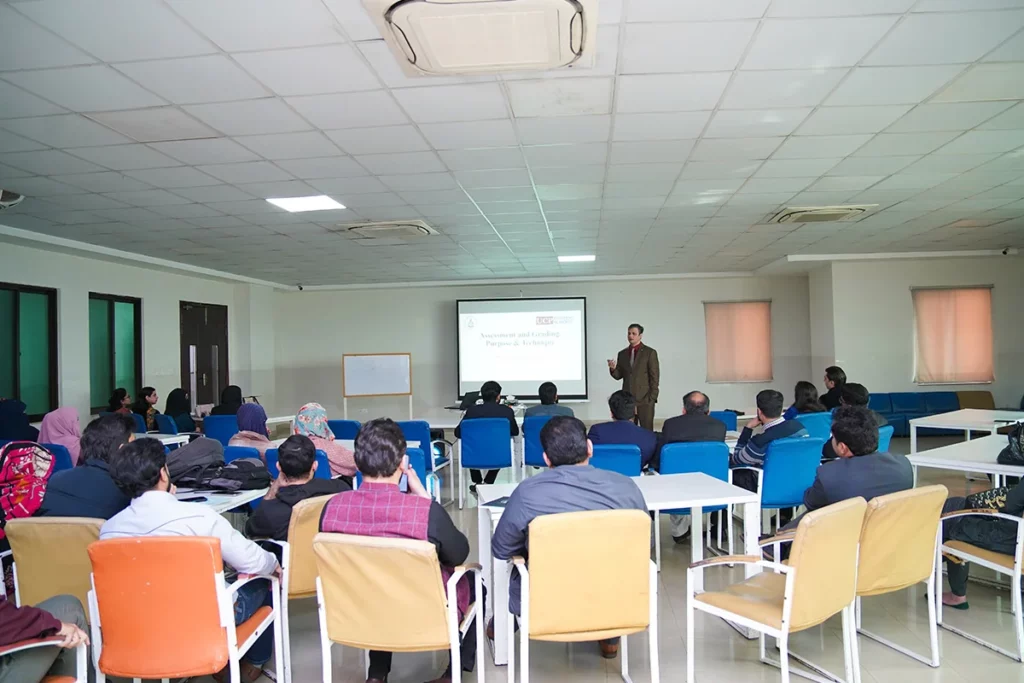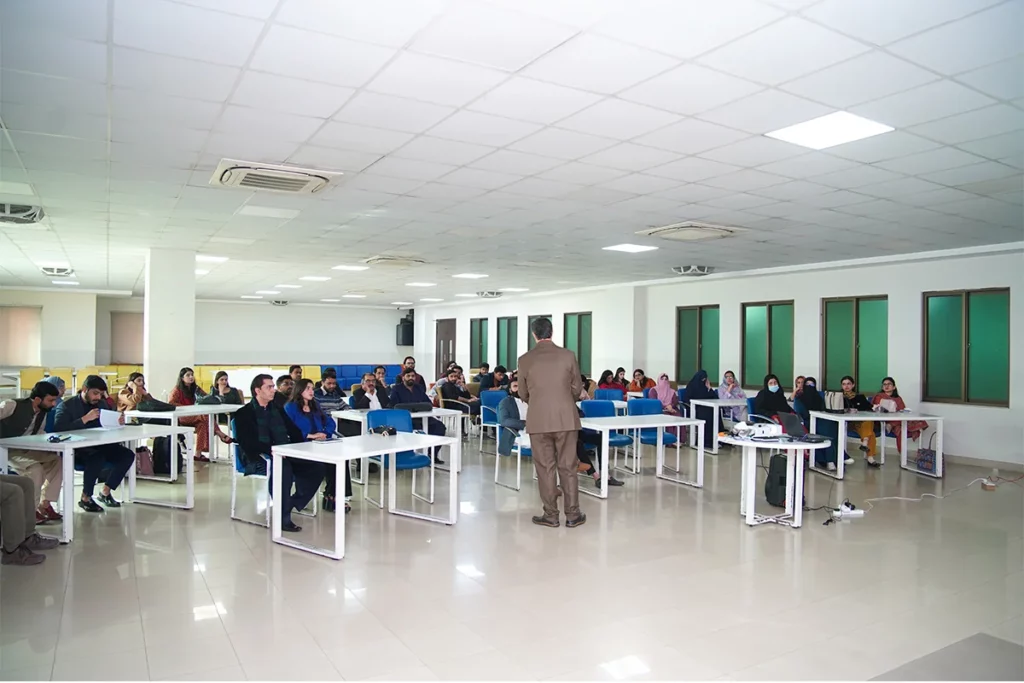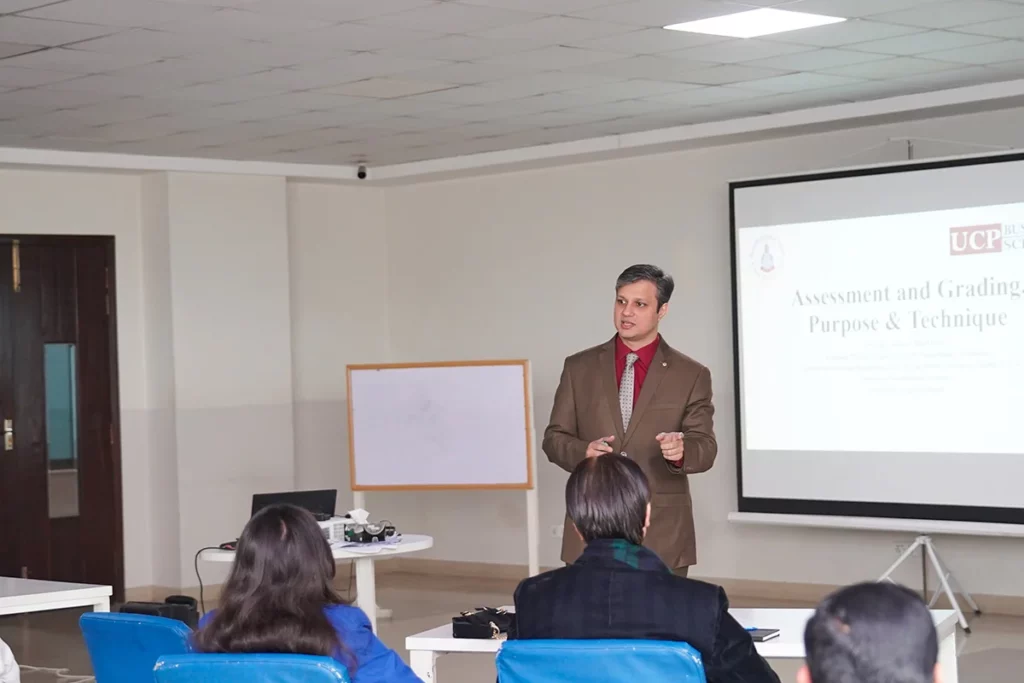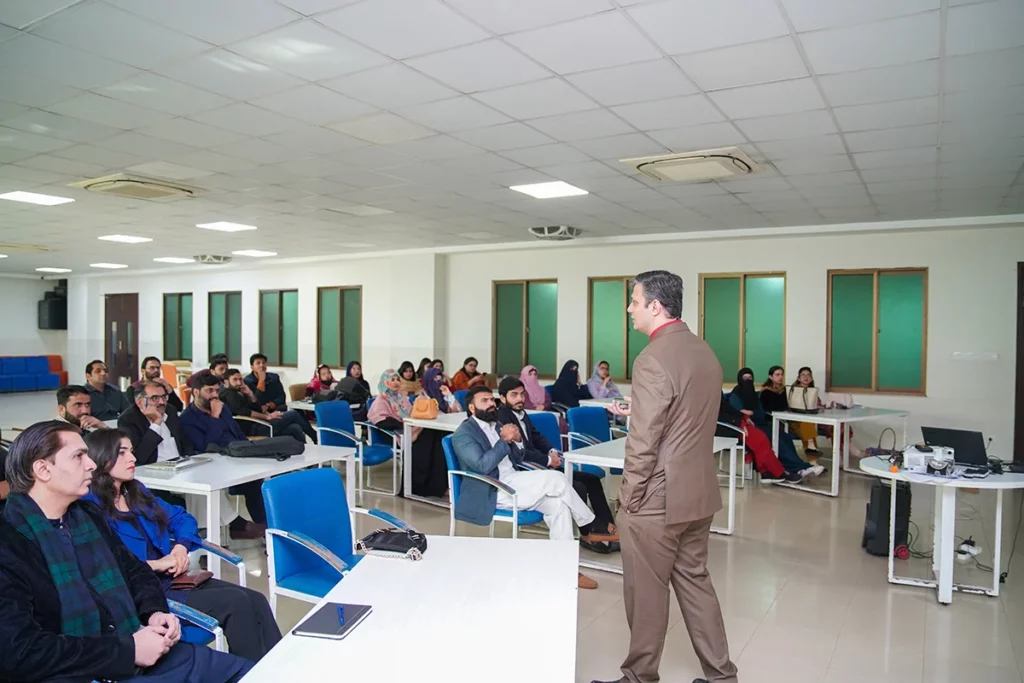1. Participants will be able to understand the importance of assessments in education:
2. Participants will understand the key differences between formative and summative assessments.
3. Participants will be able to construct effective rubrics to evaluate student performance, including identifying assessment objectives, selecting scoring criteria, and defining performance levels and descriptors.
4. Participants will understand the principles of relative grading (grading on a curve) versus absolute grading, including the benefits and potential pitfalls of each system.
5. Participants will be aware of common mistakes in grading, such as grade inflation and deflation, and learn strategies to mitigate these issues.
6. Participants will learn how to effectively link program objectives, course objectives, and course learning outcomes with appropriate assessment items to ensure alignment and coherence.
7. Participants will understand the difference between feedback and feedforward, and learn how to use both to support student development and learning.
8. Participants will engage in reflective practice to identify areas of growth and change in their teaching methods, and pinpoint areas requiring further clarity and elaboration.






